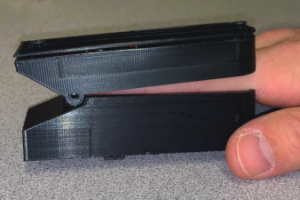
Jan. 27, 2022
CEE’s Shoman wins Intelligent Transportation System research competition
CEE doctoral student Maged Shoman Civil and environmental engineering doctoral student Maged Shoman won the research poster competition at the Intelligent Transportation Society (ITS) Heartland annual meeting in November 2021. His poster, “Evaluation of Connected Vehicles Data for Congestion & Incident Detection,” highlighted how this pilot project used data from actual roadway experiences instead of estimated data points. He worked on this project with his advisor, Assistant Professor Yaw Adu-Gyamfi. “This is the first study I am aware of to integrate real-world connected vehicle data rather than simulated data,” he said. “We analyzed the short-, medium- and long-term…

Jan. 5, 2022
Team creating system to monitor vital signs, alert patients
A Mizzou Engineering team is developing a system that will monitor vital signs and may someday be able to alert people when they need to seek medical care.

Jan. 4, 2022
Custom finger clip offers a new way to measure blood pressure, other vitals
Researchers are customizing a commercial finger clip device to provide a rapid, noninvasive way for measuring and continually monitoring blood pressure.

Aug. 25, 2020
Mizzou Engineering Launches Certificate in AI and Machine Learning
Mizzou Engineering has launched a Certificate in Artificial Intelligence (AI) and Machine Learning (ML). The graduate-level program aims to help students and professionals gain the skills they need to compete in an AI-driven job market.
- « Previous
- 1
- 2
- 3